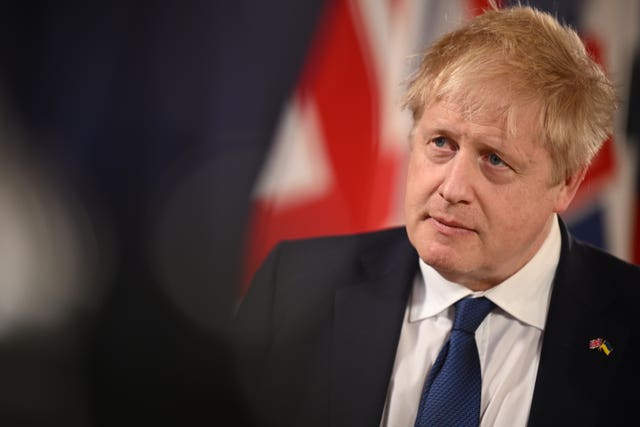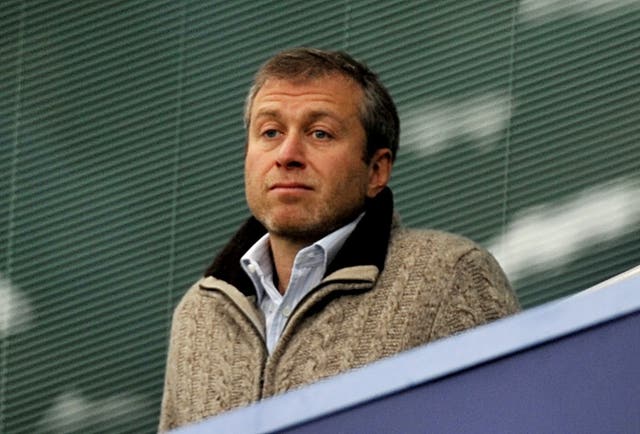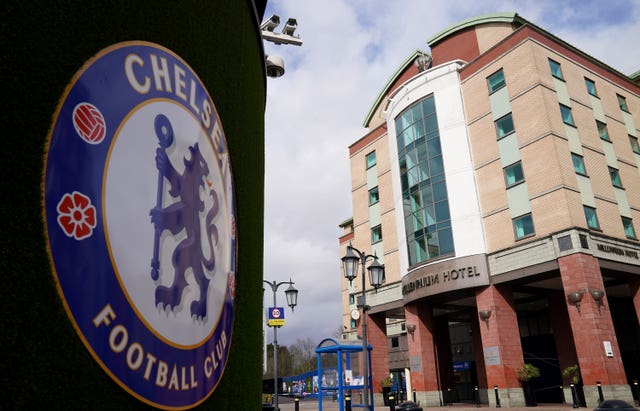
Nick Abbot 10pm - 1am
10 March 2022, 14:34

The Chelsea owner’s plan to sell the Premier League club will be stalled after his assets were frozen by the UK Government.
The UK Government has announced a sanctions strike on seven Russian oligarchs, including Chelsea football club owner Roman Abramovich.
What do the sanctions entail and what do they mean for the individuals involved?
– What has been announced?
Foreign Secretary Liz Truss has announced a full asset freeze and travel ban on seven men deemed to be “Russia’s wealthiest and most influential oligarchs”, according to the Foreign Commonwealth and Development Office (FCDO), as part of the UK’s sanctions regime against Moscow following the invasion of Ukraine.
There can be no safe havens for those who have supported Putin's invasion.
Today's sanctions are the latest step in our ruthless pursuit of those who enable the killing of civilians, destruction of hospitals and illegal occupation of Ukraine. https://t.co/VCwRnsvEps pic.twitter.com/1cj2XVVpWi
— Boris Johnson (@BorisJohnson) March 10, 2022
In Thursday’s announcement, officials said those slapped with sanctions have business empires, wealth and connections that are closely associated with the Kremlin.
They are said to have a collective net worth of around £15 billion.
– Who are they?
– Roman Abramovich, owner of Chelsea FC
– Oleg Deripaska, who has stakes in energy and metals company En+ Group
– Igor Sechin, chief executive of Russian oil company Rosneft
– Andrey Kostin, chairman of VTB bank, Russia’s second largest bank
– Alexei Miller, chief executive of energy giant Gazprom
– Nikolai Tokarev, president of Russian state-owned pipeline company Transneft
– Dmitri Lebedev, chairman of the board of directors at Bank Rossiya
– Why act now?
The Prime Minister last week promised to publish a list of Russian elites who are said to have links to President Vladimir Putin’s regime, with officials saying work was being undertaken to build the legal case for further sanctions on individuals.

Boris Johnson’s administration has faced criticism for failing to target oligarchs and their assets in the same way the European Union has done, with Brussels seizing super yachts owned by wealthy figures in recent days.
Ms Truss said Thursday’s announcement targeting the influential Russians was designed to “ramp up the pressure” on Mr Putin and “choke off funds” for his invasion of Ukraine while accusing those placed on the sanctions list of having the “blood of the Ukrainian people on their hands”.
Officials said the Government has a “hit list” of other individuals which it is currently working on sanction cases for, with ministers understood to be intent on going further.
– Why has Roman Abramovich been personally targeted?
The UK Government had deemed that Mr Abramovich has obtained “a financial benefit or other material benefit from Putin and the government of Russia”.
Those benefits including “tax breaks received by companies linked to him, buying and selling shares from and to the state at favourable rates, and the contracts received in the run-up to the Fifa 2018 World Cup”.

He has also been targeted for his associations through “close business relationships and mutual assistance” with already-sanctioned Igor Shuvalov, a former Russian deputy prime minister and general director of Russian gas giant Gazprom.
The Foreign Office also concluded that Mr Abramovich “is or has been involved in destabilising Ukraine” via Evraz plc, a steel manufacturing and mining company in which he has “a significant shareholding and … exercises effective control”.
The department said the firm has been involved in “potentially supplying steel to the Russian military which may have been used in the production of tanks”.
– What does this mean for Chelsea FC?
The Culture Secretary confirmed that a special licence will be issued to the Premier League club to allow it to continue operating after its owner was sanctioned.
Nadine Dorries said it will allow fixtures to be fulfilled, staff to be paid and existing season ticket holders to attend matches.
Non-season ticket holders will not be permitted to purchase future tickets for games, including away fans.

The club and Mr Abramovich are banned from profiting from club merchandise sales, meaning the west London outfit will be forced to shutter its club shop.
Transfers and loan deals for players are also prohibited.
Costs of travel to games cannot exceed £20,000 – a stipulation the first team will have to meet when they travel to Lille in France on Wednesday for their Champions League last 16 tie.
Mr Abramovich announced last week that he was putting the club up for sale, a process that will now be stalled but could still go through provided the Government issues a licence.
The owner would have to prove he would not benefit from the sale to meet conditions of any potential licence.
– Will there be any personal implications for Roman Abramovich?
The travel ban means the Russian-Israeli billionaire, who is worth about £9.4 billion and also has stakes in mining firm Norilsk Nickel, will not be permitted to enter the UK.
3/4 To ensure the club can continue to compete and operate we are issuing a special licence that will allow fixtures to be fulfilled, staff to be paid and existing ticket holders to attend matches while, crucially, depriving Abramovich of benefiting from his ownership of the club
— Nadine Dorries (@NadineDorries) March 10, 2022
Jets and yachts owned or chartered by Mr Abramovich can be detained, the sanctions say.
– How did Roman Abramovich make his wealth?
He sold a 73% stake in Russian oil firm Sibneft to state-owned gas titan Gazprom for £9.87 billion in 2005.
The FCDO said he is one of the few oligarchs from the 1990s to maintain prominence under Mr Putin.
No ally of the UK has yet sanctioned the businessman.
– Are any of the other sanctioned oligarchs well known in Britain?
Oleg Deripaska, an industrialist worth £2 billion who has a multimillion-pound property portfolio in Britain, has had close links with the UK political establishment.
In 2008, he was embroiled in a row involving Labour grandee Lord Mandelson and then-shadow chancellor George Osborne.
Both men met Mr Deripaska on his yacht, while Mr Osborne reportedly attempted to solicit a donation for the Conservative Party from the oligarch – something he denied at the time.
Elsewhere, Igor Sechin, chief executive of state oil firm Rosneft, is regarded as Mr Putin’s “right-hand man”.
– What does it mean to freeze an asset?
The implications on frozen assets are that no financial transaction can be made on them at any time, according to UK officials.
The impact of this ranges from blocking any sale, all the way to preventing someone from being paid to clean a property or provide security.
A sale can be granted, however, should the Treasury choose to provide a licence to allow an exemption.